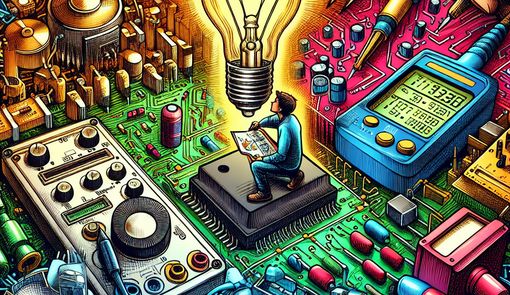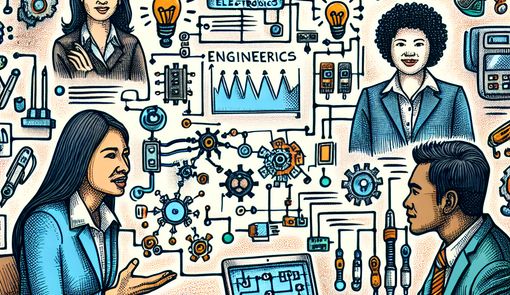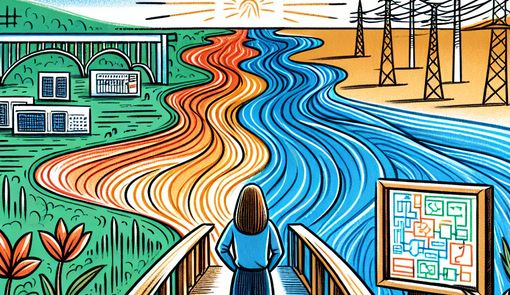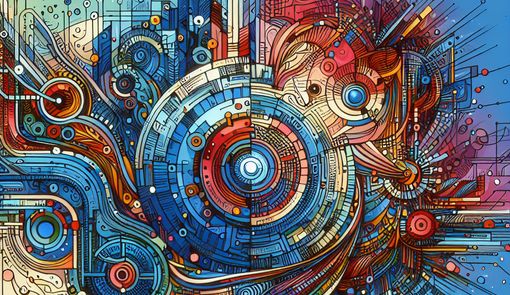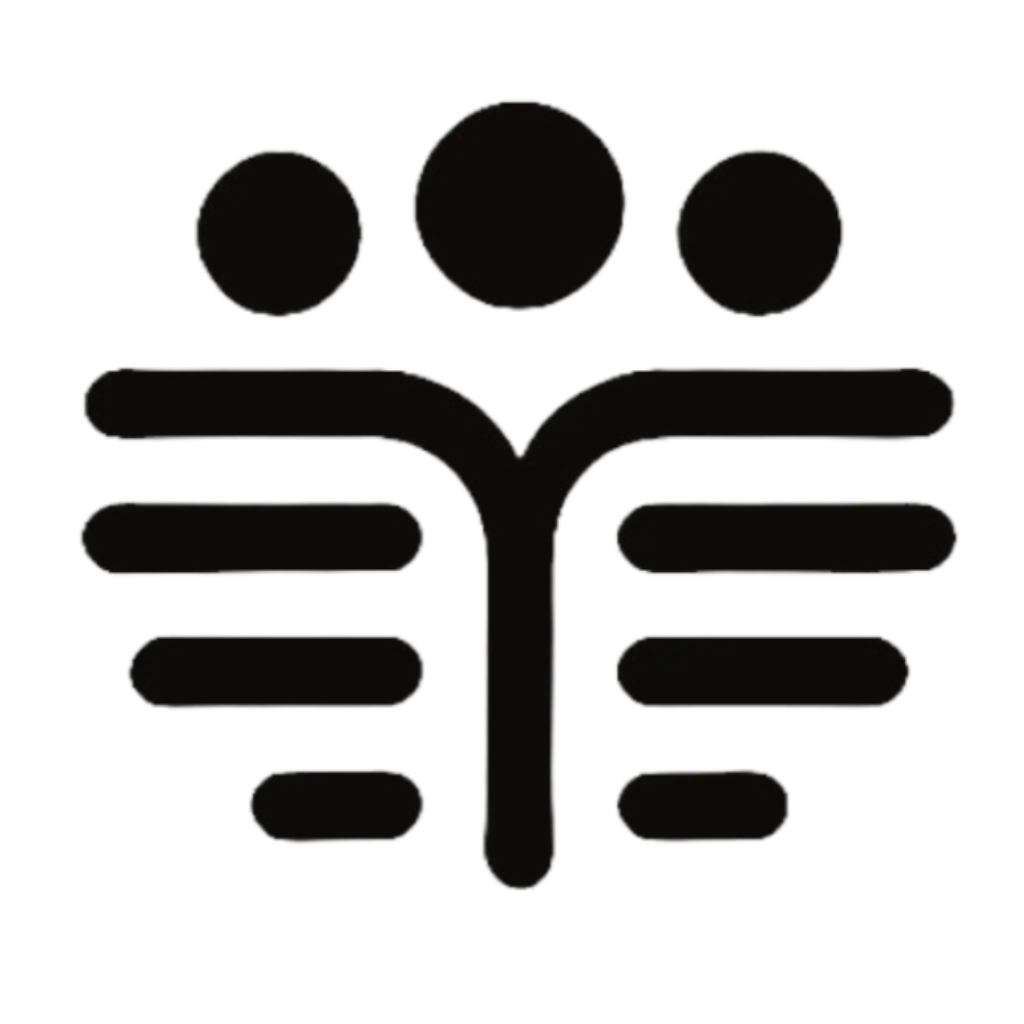Power Electronics Engineer
This engineering role specializes in the design and management of power electronic systems, which may include converters, power supplies, and motor drives, often within the renewable energy or electric vehicle sectors.
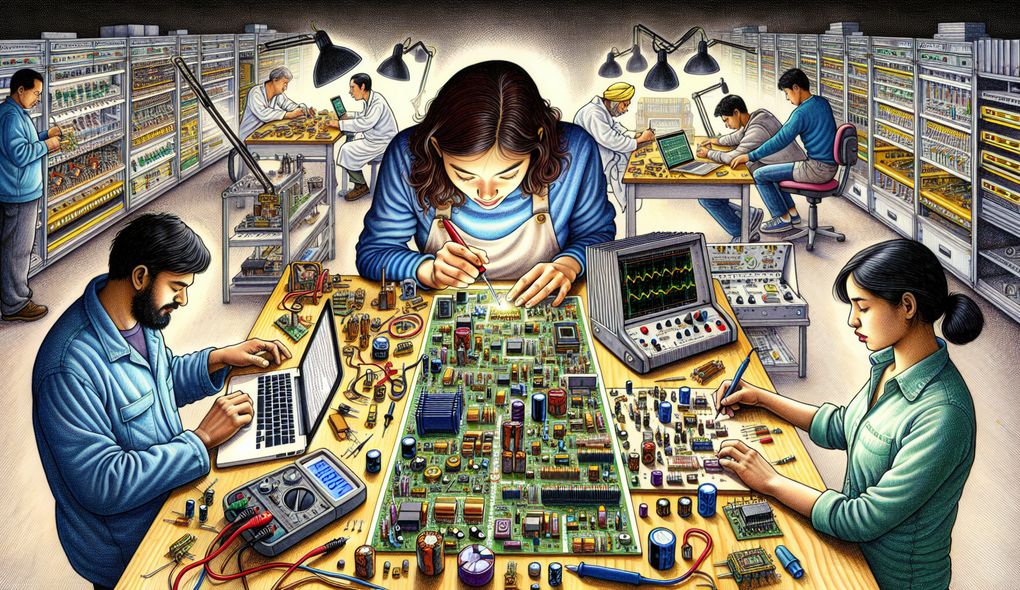
Top Articles for Power Electronics Engineer
Sample Job Descriptions for Power Electronics Engineer
Below are the some sample job descriptions for the different experience levels, where you can find the summary of the role, required skills, qualifications, and responsibilities.
Junior (0-2 years of experience)
Summary of the Role
Seeking a motivated Junior Power Electronics Engineer to join our dynamic team, focusing on the design, development, and testing of power electronic systems, such as converters and inverters. This role provides an excellent opportunity to gain hands-on experience in a fast-paced environment, contributing to innovative projects and solutions.
Required Skills
- Proficiency with CAD tools for circuit design.
- Basic knowledge of power electronic components and systems.
- Understanding of control theory and its application in power electronics.
- Experience with laboratory equipment such as oscilloscopes, signal generators, and soldering stations.
- Keen interest in staying updated with the latest technologies and industry trends in power electronics.
Qualifications
- Bachelor's degree in Electrical Engineering, Power Electronics, or a related field from an accredited university.
- Understanding of power electronics concepts, including converters, inverters, and control techniques.
- Familiarity with electrical circuit simulation software such as SPICE, MATLAB/Simulink, or similar.
- Strong analytical and problem-solving skills.
- Ability to work well in a team and communicate effectively.
Responsibilities
- Assist in the design and development of power electronic circuits and systems.
- Conduct simulations and modelling of power electronic systems to predict performance.
- Perform laboratory testing of power electronics prototypes and systems.
- Collaborate with cross-functional teams to integrate power electronics components with other systems.
- Support the preparation of technical documentation, such as datasheets, manuals, and reports.
- Contribute to the troubleshooting and problem-solving of power electronics-related issues.
- Participate in the continuous improvement of design methodologies and engineering processes.
Intermediate (2-5 years of experience)
Summary of the Role
As a Power Electronics Engineer, the candidate will be involved in designing, developing, and testing electronic components and systems that are utilized in controlling and converting electric power. This role requires a blend of theoretical knowledge and practical application in various sectors such as energy, automotive, and industrial systems. The ideal candidate should be innovative, detail-oriented, and have a strong foundation in electrical engineering principles.
Required Skills
- Circuit design and analysis
- PCB layout and design
- Electronic simulation and modeling
- Component selection and evaluation
- Thermal management of electronic systems
- Understanding of control theory for power converters
- EMC/EMI compliance and testing
- Utilization of lab equipment (oscilloscopes, spectrum analyzers, etc.)
- Problem-solving and critical thinking
- Time management and project management
Qualifications
- Bachelor's degree in Electrical Engineering or a related field.
- A minimum of 2 years of experience in power electronics or related area.
- Strong understanding of power conversion technologies and topologies.
- Familiarity with power semiconductor devices such as MOSFETs, IGBTs, and diodes.
- Knowledge of electronic simulation tools like PSpice, LTspice, or similar.
- Experience with PCB design software and layout techniques.
- Proven ability to troubleshoot and resolve technical issues.
- Excellent written and verbal communication skills.
- Ability to work collaboratively in a team environment.
Responsibilities
- Design and develop power electronics circuits and systems for various applications.
- Specify and select appropriate components and materials for power electronics projects.
- Collaborate with cross-functional teams to integrate power electronic systems with other system components.
- Perform simulations and analysis of electronic circuitry to assess and improve system performance.
- Create technical documentation, including specifications, test procedures, and reports.
- Ensure compliance with industry standards and safety regulations.
- Provide technical support for power electronics products throughout the development, testing, and production phases.
- Contribute to continuous improvement efforts in power electronics design processes.
Senior (5+ years of experience)
Summary of the Role
As a Senior Power Electronics Engineer, you will lead the development and integration of power electronics systems, including inverters, converters, and power management systems for applications in renewable energy, electric vehicles, and industrial machinery. You will work closely with a multidisciplinary team to design, test, and improve high-efficiency power electronic components and systems.
Required Skills
- Expert knowledge of power electronics theory and applications.
- Proficiency in electronic design automation (EDA) tools for PCB design and layout.
- Experience with embedded systems and firmware development for power electronic control.
- Ability to work independently and manage multiple projects with tight deadlines.
- Strong communication and leadership skills.
- Adept at using laboratory equipment for testing and validation, including oscilloscopes, power analyzers, and load banks.
Qualifications
- Bachelor's or Master's degree in Electrical Engineering, Power Electronics, or a related field.
- Minimum of 5 years of experience in power electronics design and development.
- Proven track record of designing and delivering successful power electronics products.
- Deep understanding of power electronic topologies, magnetics design, thermal management, and control techniques.
- Familiarity with industry standards and certification processes for power electronics systems.
- Experience with power electronics simulation tools such as PLECS, PSIM, or LTspice.
- Strong analytical and problem-solving skills, with excellent attention to detail.
Responsibilities
- Lead the design and development of power electronic systems and components, including simulation, testing, and integration into larger systems.
- Develop innovative solutions to improve power conversion efficiency, reliability, and performance in line with industry standards.
- Collaborate with cross-functional teams including mechanical, software, and systems engineers to optimize system-level performance.
- Guide the selection of components, materials, and processes to ensure product quality and compliance with safety and regulatory standards.
- Prepare technical documentation, such as design specifications, test plans, and user manuals.
- Oversee the product lifecycle, including concept, prototyping, certification, production, and post-release support.
- Mentor junior engineers and contribute to the development of internal engineering processes and best practices.
See other roles in Industrial, Construction, and Energy and Energy
